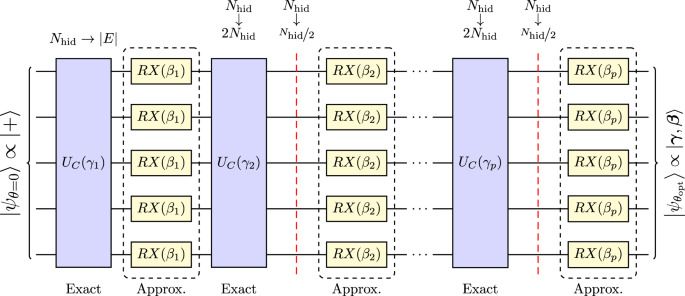In this work, we introduce a classical variational method for simulating QAOA, a hybrid quantum-classical approach for solving combinatorial optimizations with prospects of quantum speedup on near-term devices. We employ a self-contained approximate simulator based on NQS methods borrowed from many-body quantum physics, departing from the traditional exact simulations of this class of quantum circuits.
We successfully explore previously unreachable regions in the QAOA parameter space, owing to good performance of our method near optimal QAOA angles. Model limitations are discussed in terms of lower fidelities in quantum state reproduction away from said optimum. Because of such different area of applicability and relative low computational cost, the method is introduced as complementary to established numerical methods of classical simulation of quantum circuits.
Classical variational simulations of quantum algorithms provide a natural way to both benchmark and understand the limitations of near-future quantum hardware. On the algorithmic side, our approach can help answer a fundamentally open question in the field, namely whether QAOA can outperform classical optimization algorithms or quantum-inspired classical algorithms based on artificial neural networks48,49,50.
